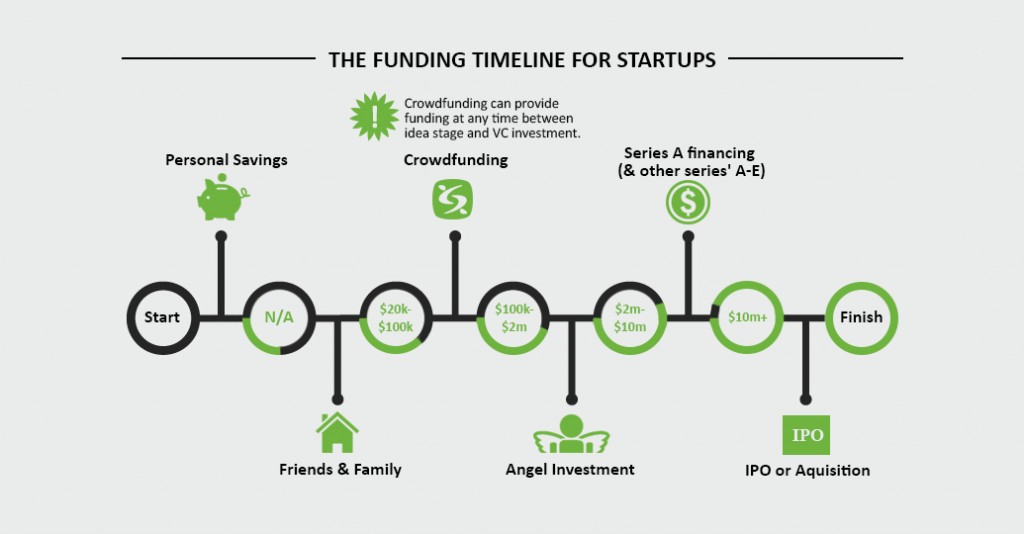Sooner or later all startups need funding, and cash is the fuel to get it driving in the right direction. But where will that cash come from?
There are a lot of variants involved—such as size, age and industry in which the startup will operate. These elements as well as desired growth expectations will need to be defined before pinpointing and attaining financial resources.
For those who are in the beginning phase (seed phase), finding the right partnership with an investor is crucial.
A solid and trustworthy partnership with an investor takes time and effort. Again, it’s a b**** because you need to minimize failures and maximize successes.
You need to know HOW to choose your target group of possible investors.
 Ok, you are at the beginning of making your business a reality. You have a clear picture of how it’s supposed to work….and maybe you have already developed the product (or service). And now you need the fuel.
Ok, you are at the beginning of making your business a reality. You have a clear picture of how it’s supposed to work….and maybe you have already developed the product (or service). And now you need the fuel.
The best investors are actually
1. Your clients!
Make your clients pay you first, explains Anna Söderblom, board member of 11 companies and holder of a PhD in Entrepreneurial Finance at Stockholm School of Economics. Anna teaches Finance for Startups at Stockholm School of Entrepreneurship and states – try to get pre-orders before you have a product. Fritjof Andersson, CEO of social media company RelationDesk.com agrees with that statement because his early clients where his main investors.
2. Incubators
are also a possible funding source. They are normally based at universities and you may need to be a current student or alumni of the university to be eligible, so check it out! In Stockholm there are some from all over the world.
Applying for incubator projects take time, but it’s worth it! The media coverage, advice and funding they provide will be valuable to the future of your company.
Same with crowdfunding platforms—if you’re lucky, you’ll get investments and public recognition—especially when your business is b2c.
3. Accelerators
like Seed Nordic provide you with 100 000 SEK and 16 weeks to prove your idea. Kenneth Hellem, CEO of Seed Nordic, suggests that investing in a skillful person is more important than the idea itself.
”Your first idea is always wrong, so the right person will always figure it out,”
says Kenneth. “My advice for entrepreneurs is—before doing something, talk to your customers. Do they really need, want or wish for the product you plan on creating? The second important question to ask is—why you? What is so unique in your approach to solving a problem?”
Last, but not least,
4. Business Angels
are people who support a business financially. They typically invest private capital in small or newly established enterprises. They often come on board and help by providing expert advice. And they usually invest close to the places where they live or lived.
Business Angel Jan-Eric Ramberg, with a background in Microsoft, supports the idea where the man or team behind the startup plays a huge role, but there are also other factors to consider when making decisions.
”I invest in areas that I understand. I understand IT, therefore I invest in IT. You cannot be an expert in everything,” says Jan-Eric. ”I usually ask three questions to startups:
Is it viable? Is it fundable? And is it scalable?”
Business Angel Roger Silvermane, a much disciplined investor, bases his decisions to invest, or not to invest, on the entrepreneurs’ answers to following questions: How will revenue will be earned? How will the business be scaled-up globally? Who are the potential customers? What’s the exit strategy? And how much capital will be needed?
Roger has invested in eight companies over the past 2.5 years, and to be considered an investment from his standpoint, the startup should:
- Have unique technology and/or a unique business concept with strong competitive advantages
- Be scalable on a global level
- Have a strong entrepreneurial team with relevant experience and background
- Return on Investment > 10x investment
- One hour radius within Stockholm area
- Have relevant experience in the business / industry
Banks still believe in business plans, therefore they (as well as private investors) need business models and financial projections based on existing historical data. And do not think that an investor won’t understand the numbers you present in your business plan. They invest their own money and they do care about it.
P.S. Go deeper into investor’s mind here – Inside the Investor’s Mind.


4 Comments